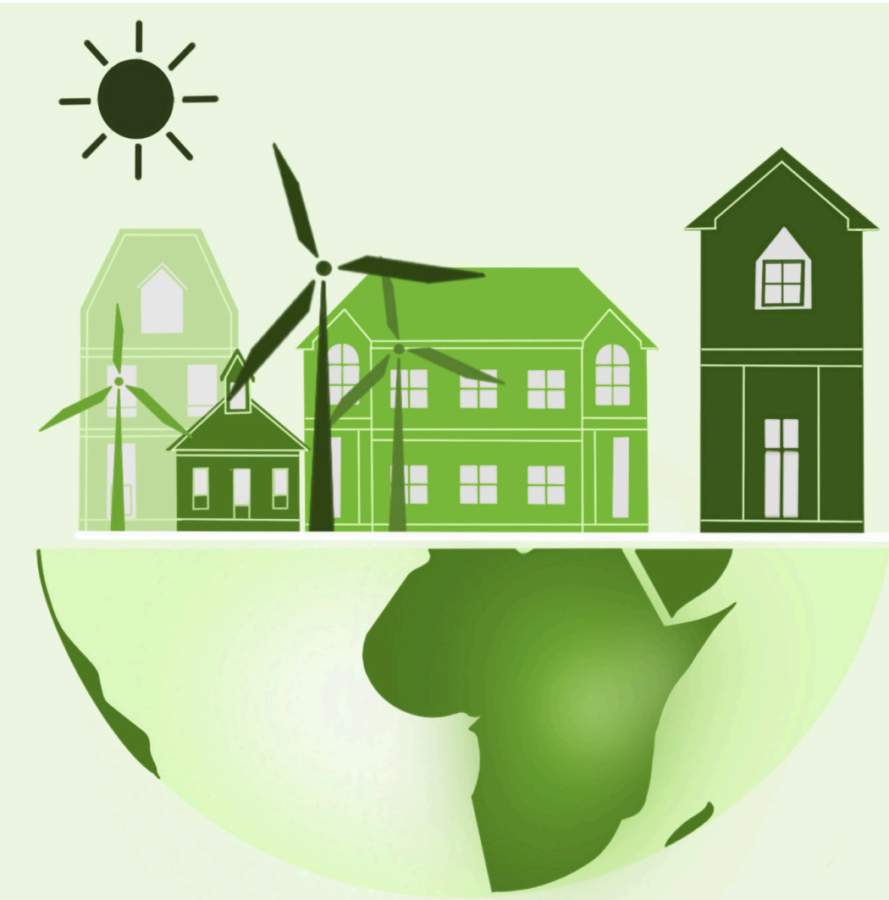Finding optimism in the face of climate change
An interview with Case Western Reserve University’s Dr. Onema Adojoh
November 11, 2022
In the aftermath of both Hurricane Fiona and Ian, concerns about the changing climate and its impacts on how we live press upon many of us. Dr. Onema Adojoh, from the Case Western Reserve University Department of Earth, Environmental, and Planetary Sciences offered in conversation some information on what climate change means for students, what we can do to take control of our futures and how to remain positive during this uncertain time.
Dr. Adojoh, a visiting assistant professor of environmental science at Case Western Reserve University, conveys passion for his field in numerous ways. The walls of his office are adorned with water level contour maps and groundwater hydrographs, and he speaks with an excitement and vitality that is rare to hear. This conversation with Dr. Adojoh comes at a crucial time: Climate change is becoming more and more visible, and with it, anxiety about its effects are on the rise. By speaking with experts like Dr. Adojoh, we can find reasons to remain positive, even amongst all the bad news.
Dr. Adojoh’s research has taken him all over the world—including Australia, England, Japan and the U.S.—and has given him a unique perspective on how climate change is impacting different corners of humanity. The impact of climate change is far reaching, affecting humans internationally, and Adojoh emphasized the importance of global collaboration when it comes to combating the effects of climate change, stating, “People have to see that climate change is not an individual thing—it is a global thing.”
Dr. Adojoh also noted that despite governments working to mitigate the effects of climate change, we as individuals “need to change our habits as well.” Traditionally, we think of changing our habits as using less water in the shower or driving less, and Dr. Adojoh did not discount the importance of this. For him, however, changing individual habits also includes supporting “different mitigation policies” that seek to make positive changes on a larger scale. “For instance,” says Dr. Adojoh, “avoiding or reducing the greenhouse emissions from industries.” He also emphasized the need to invest in alternatives that would maintain our present way of life while simultaneously mitigating the effects of climate change. “We need to think about another alternative source, you know. People tend to drive a lot of cars around. How about we look into getting bicycles, because with bicycles we can reduce the gasses emitted from the cars.” He further explained the role of government in this process by saying that “the government needs to support these systems.”
Building on the notion that climate change affects humans in aggregate, Dr. Adojoh emphasized the role of people in the arts and social sciences in the fight against climate change. Though some fields—namely the sciences—may interact with climate change more directly than others, the role of the arts, humanities and social sciences are equally responsible in mitigating climate change by influencing culture and legislation. Dr. Adojoh says that “in terms of policy making, the social sciences are to take the lead.” He goes on to say that it is necessary that science be dissociated from policy, as this allows the science “to stand firm.” In other words, no single discipline can solve this epoch-defining dilemma of climate change on its own. Regarding the arts, Dr. Adojoh says that “the arts will definitely dominate” when it comes to “spreading the message [of science].” The arts are especially important, as most people do not want to spend their time perusing through dry science journals. The arts can translate the findings of scientists into more accessible and interactive mediums. It is better if “people come to the public and talk to them,” says Dr. Adojoh, because this will help to spread awareness of climate change.
Dr. Adojoh’s positivity was most touching. This is a remarkable thing to have, considering the field he works in contends with the heavy reality of climate change. He admitted there are a lot of reasons to be discouraged, saying that “those of us in academia need more support.” He also noted that the impacts of climate change on the world can be upsetting. In reference to recent flooding in Kentucky, he says, “because of the heatwaves, everywhere was highly flooded, many houses got destroyed—people could not even do the business they needed to do.” Despite all this, Dr. Adojoh insisted that “we have to stay motivated.” When I asked him how, he gave a glimpse into the source of his own optimism by saying “we should be thinking about the solution, not what happened.”
The importance of this is not to disparage yourself. It is all too easy to become bogged down by all the bad things happening in the world, but if one can maintain a future-oriented mindset, one is better able to learn from the past and use it to shape the future.


